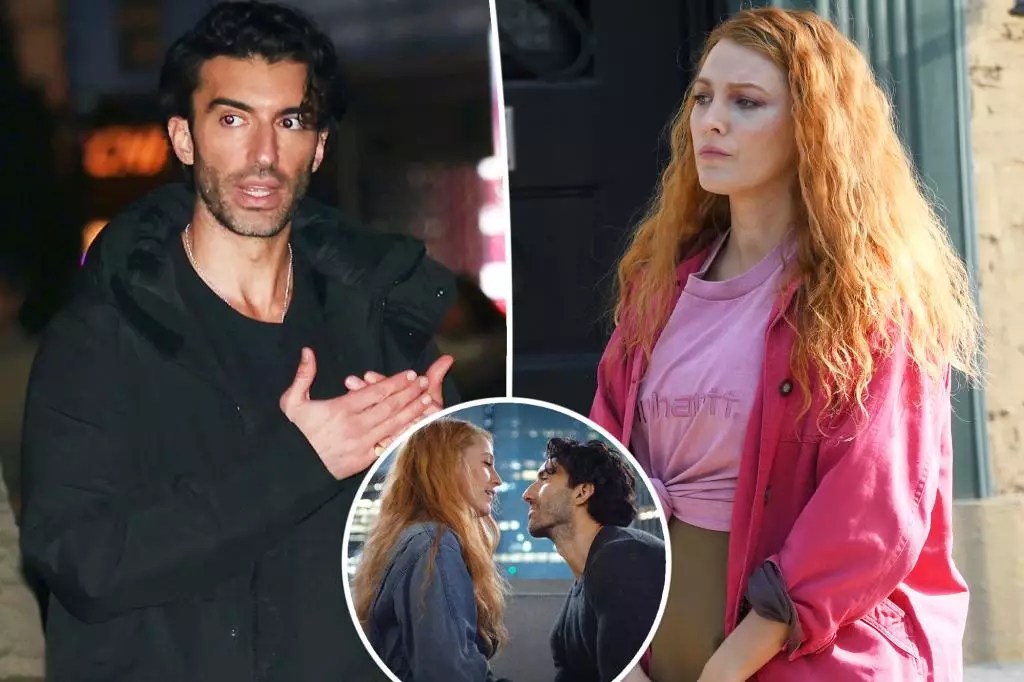The entertainment industry is no stranger to controversies, especially when it comes to allegations of misconduct and subsequent legal battles. The latest high-profile dispute involves actor and director Justin Baldoni and actress Blake Lively, who recently found themselves in the midst of a brewing legal storm. As claims of sexual harassment emerged from Lively regarding Baldoni’s conduct on the set of the adaptation of Colleen Hoover’s novel “It Ends With Us,” the anticipated counter-complaint from Baldoni reveals how toxic and complex the world of Hollywood can be.
The conflict began when Blake Lively publicly accused Justin Baldoni of sexual harassment, a claim that can drastically alter public perception and careers. While the details surrounding Lively’s allegations remain somewhat unclear, the fallout has led to a significant escalation in tensions. In a typical Hollywood fashion, this situation caught the attention of the media, with outlets competing to deliver the latest developments. For Baldoni, who has built a reputation over the years, being accused of such serious misconduct could pose severe ramifications for both his professional and personal life.
Amidst the swirling public commentary, Baldoni’s response is notably aggressive. His legal team, led by attorney Bryan Freedman, is allegedly preparing an “explosive” counter-complaint aimed at refuting Lively’s claims. Freedman has characterized this forthcoming legal action as a means of revealing what he refers to as a “demonstrably false narrative” about his client. The fervency of Baldoni’s legal strategy indicates not only a desire to clear his name but also a full-frontal attack on Lively’s credibility.
The Role of Media Manipulation
Freedman’s comments touch on a damaging theme prevalent in celebrity culture—media manipulation. By suggesting that Lively and her publicist actively played a role in generating negative press about Baldoni, he raises questions regarding the power dynamics at play in the public arena. The exchange hints at an intentional effort to shape the narrative. The idea that publicists and PR teams can engineer press coverage in ways that damage someone’s reputation is an unsettling reflection of celebrity life that often goes unnoticed by the public.
Freedman drew parallels to other high-profile media controversies, referencing the experiences of Megyn Kelly and Gabrielle Union, which suggests a pattern of unethical conduct following allegations of insincerity. Such comparisons amplify the stakes of this confrontation and showcase how media narratives can damage careers indiscriminately, underscoring the potent influence of opinion pieces and reports driven by sensationalism.
As both actors head into what could be an extensive legal dispute, the fight for public perception emerges as a pivotal battleground. With Lively having garnered significant support from her colleagues and fans alike, including Hoover and co-star Jenny Slate, the question remains: what kind of evidence can Baldoni provide to change the narrative? A clear demonstration of misconduct on Lively’s part would not only vindicate Baldoni but also potentially sway public sympathy to his side.
Yet, the timing of Lively’s accusations raises eyebrows, particularly in terms of its coinciding with negative perceptions surrounding her own promotional efforts for “It Ends With Us.” Many observers speculate that her legal actions could be strategically motivated to recapture the public’s favor amid unfavorable media portrayals. Conversely, Baldoni’s legal representatives are gearing up to establish a narrative that could turn the tide, asserting that her claims are a diversionary tactic.
As this dispute continues to unfold, it serves as a microcosm of broader issues in the entertainment industry—issues of power, reputation, and the repercussions of public allegations. This saga between Baldoni and Lively should remind us all of the precarious nature of fame and the fragility of public trust. Ultimately, the outcome of their legal battles will not only shape their own futures but also highlight the necessity for accountability and ethical behavior within an industry that often puts such values aside for the sake of publicity.
The ongoing situation between Justin Baldoni and Blake Lively encapsulates the multifaceted nature of celebrity culture, revealing how quickly public perceptions can shift and how crucial it is for individuals to navigate the treacherous waters of media scrutiny. As legal maneuvers unfold, the public waits with bated breath to witness how this drama will play out under the spotlight of fame.







Leave a Reply